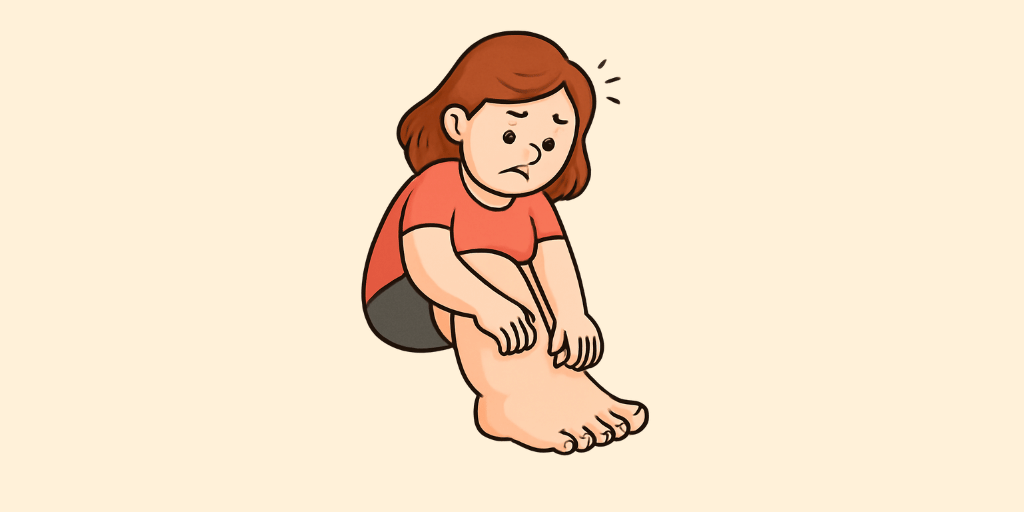Ayurvedic Name: Shotha
Description:
Shotha is a condition of localized or generalized swelling due to fluid retention and impaired lymphatic drainage, resulting from an imbalance of Vata, Pitta, or Kapha. It results in inflammation, pain, heaviness, and restricted mobility, often linked to kidney disorders, joint inflammation, or chronic infections. Depending on the Dosha involved, swelling can be soft and cold (Kaphaja), hot and red (Pittaja), or dry and painful (Vataja).
Signs & Symptoms:
- Shotha (Swelling): Visible swelling in the legs, face, or abdomen.
- Gaurava (Heaviness): A sensation of heaviness in the swollen area, especially in the legs or hands.
- Rukshata (Dryness): Dry, tight skin in the swollen areas, particularly with chronic conditions.
- Kapha Utklesha (Excess Fluid Accumulation): A feeling of bloating and fullness, with a pale or shiny appearance.
- Shwasa (Breathlessness): Difficulty breathing, especially when lying down (orthopnea) or after physical exertion.
- Trishna (Excessive Thirst): Increased thirst, often due to the body’s attempt to balance fluid retention.
- Sparsha Asahyata (Tenderness to Touch): Pain or sensitivity in the swollen area, often when pressure is applied.
Diagnosis:
Physical Examination with Pitting Test and Serum Albumin Test
Risk Factors:
- Dietary Factors
High salt intake leading to fluid retention and swelling.
Poor digestion and bloating from excessive heavy foods or dairy products that contribute to water retention. - Lifestyle Factors
Prolonged periods of standing or sitting, which hinder proper circulation and lead to swelling in the legs and feet.
Lack of physical movement or exercise, which can exacerbate fluid buildup. - Medical Conditions
Chronic kidney disease, heart failure, or liver cirrhosis can cause fluid retention and edema.
Hormonal imbalances, such as during pregnancy or menstruation, can also lead to temporary swelling.
Complications:
- Tissue Damage (Dhatugat Shotha): Chronic edema can lead to tissue damage and skin ulcers due to prolonged swelling and pressure.
- Respiratory Distress (Shwasa Daurbalya): Severe edema, especially in the lungs (pulmonary edema), can lead to shortness of breath and impaired oxygen exchange.
- Kidney Failure (Vrikka Kshaya): Edema caused by kidney disease can worsen over time, leading to complete kidney failure if left untreated.
- Cardiac Complications (Hridaya Kshaya): Edema from heart failure can cause fluid buildup in the body, increasing the strain on the heart.
- Joint Stiffness (Sandhi Shotha): Prolonged swelling around joints can cause stiffness and limited mobility.
Epidemeology:
More common in older adults, particularly those with heart or kidney conditions.
Women are more likely to experience edema during pregnancy, hormonal changes, or due to lifestyle factors.
Affects individuals with chronic diseases like heart failure, kidney disease, or liver cirrhosis.
Approximately 5-10% of the global population experiences some form of edema, with higher incidence in individuals with comorbidities.

